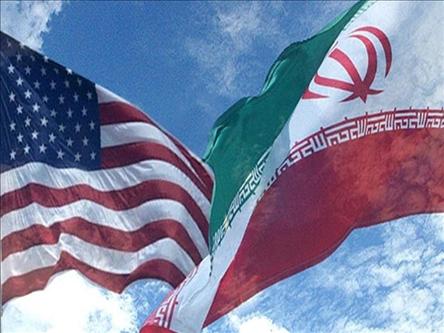US seeks talks with Iran on its nuclear program

By Sara Rajabova
The U.S. has disclosed the principles underlying its possible direct talks with Iran.
Speaking to journalists via an online press conference, Department of State spokesman Alan Eyre said such talks are possible, Azerbaijan's Trend news agency reported.
According to Eyre, as previously U.S. President Barack Obama said, the U.S. is ready for talks with Iran, either within the P5+1 group regarding the nuclear program, or outside of that format, directly between the two sides.
Eyre added that it would be beneficial for both sides and help to resolve the nuclear issues and other general issues as well.
"We are willing to accept a stable, mutual solution that would be in favor of both sides," Eyre said.
Also, he said that the U.S. has no preconditions for direct talks, however, there are several principles which both sides have.
"These principles are going step-by-step, having mutual trust and respect. Both sides must show goodwill and be serious about the negotiations," Eyre noted. "These are not preconditions, but principles, and the negotiations build on these principles."
However, Iran is skeptical over the US intentions about direct talks.
Iranian legislators said earlier that as long as the U.S. refuses to change its behavior and policy, Tehran's position on the issue will remain unchanged.
Speaking about the sanctions, Eyre said that the U.S. doesn't have a problem with a strong and independent Iran.
"We do not want to damage the country's independence. We do not have a policy of sanctions," he said.
Eyre then said that there is a two-sided policy in the international arena.
According to him, sanctions are part of the pressure, which is the first policy. The other policy is diplomacy, he said, adding that the priority is solving the outstanding problems by diplomatic means.
"What is important is that Iran says its nuclear program is peaceful, and if it is so, then why isn't Iran being serious about the negotiations?" Eyre asked.
He underscored that the international community solves problems with diplomatic means and negotiations.
"Due to this, we really want the negotiations with Iran to take place, and so that the nuclear issues would be solved as well," he said.
Answering a question about the sanctions affecting not only Iran's government but also the people, Eyre said it is natural.
"Obviously, the sanctions affect not only the government but the people as well, and because of this, the U.S. is not only sorry but worried as well," he said.
He added that the U.S. is trying to reduce the damage towards the people of Iran as much as possible, however the important thing is that the Iranian people suffer because of their own government's decisions.
"This government represents the Iranian people, and its position can either be an asset to the people or its loss," Eyre noted.
He blamed the Iranian government for mismanagement and suffering of the people.
"What the Iranian people are going through may be because of bad management, may be because of corruption or because of the sanctions. The sanctions have also affected the Iranian government's strategic plans, and that is the outcome of the sanctions strategy. We do not want this to affect ordinary people."
Also, Eyre said that Iran should not be afraid of cooperating with the international community.
He said that if Iran stands by its word and can take international responsibility, the sanctions could be halted.
He added that Iran is important for the international community.
"We do not want an isolated Iran. A strong and independent Iran is needed for the international community, as well as Iran needs the international community," Eyre said.
Recently, US Secretary of State John Kerry expressed Washington's 'strong' commitment to settle its differences with Iran.
"Despite the difficult history of the last decades between the United States and Iran, there is an opportunity to work diplomatically to reduce tensions and address the mistrust between our two countries, to the mutual benefit of both of our people," Kerry said in a statement.
The United States, Israel and some of their allies have repeatedly accused Iran of pursuing non-civilian objectives in its nuclear energy program, with the United States and the EU employing this as grounds to impose several rounds of sanctions against Tehran.
Tehran refutes the allegations, saying that as a signatory of the nuclear Non-Proliferation Treaty and a member of the International Atomic Energy Agency, it has the right to enrich uranium for peaceful purposes.
Here we are to serve you with news right now. It does not cost much, but worth your attention.
Choose to support open, independent, quality journalism and subscribe on a monthly basis.
By subscribing to our online newspaper, you can have full digital access to all news, analysis, and much more.
You can also follow AzerNEWS on Twitter @AzerNewsAz or Facebook @AzerNewsNewspaper
Thank you!
